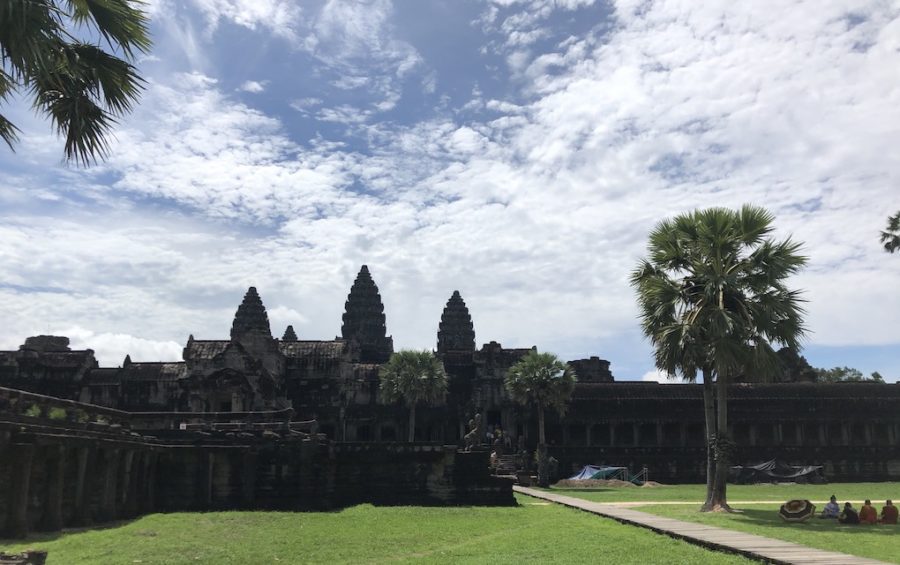Unesco expressed concern over the impact of NagaCorp’s resort project just south of the Angkor Archaeological Park area in Siem Reap province.
According to a Unesco press release from Wednesday, the organization is closely monitoring the plans to build a 75-hectare resort, 500 meters outside the park’s protected area.
According to the statement, Unesco received a number of communications from third parties expressing their concerns.
Unesco said the plans were discussed during a meeting of the international coordinating committee for conservation and development of the Angkor historical site on January 26 and 27, and the opinions of technical experts were “clearly unfavorable to it,” the statement said.
“The proximity of the project to the protected buffer zones of the site as well as the scale, scope and concept of the planned activities could indeed have an impact on the outstanding universal value for which Angkor was inscribed on the UNESCO World Heritage List,” it said, “including its setting, the surrounding landscape, the environment and the archaeological remains, all of which are an integral part of this World Heritage property.”
The organization said it in close discussions with Cambodian authorities.
NagaCorp, the owner and operator of NagaWorld in Phnom Penh, unveiled its plan for a non-gambling resort development in November. The proposal, tentatively named “Angkor Lake of Wonder,” would include two five-star hotels, a water park, indoor hi-tech theme park, China Town and ancient Angkorian-style canal attraction. It has further plans for a spa and cultural gardens. The first stage is scheduled for completion by 2025.
Apsara Authority spokesperson Long Kosal said that the international committee for Angkor had also raised its concerns with the authority.
“We will not do anything to affect the universal value of Angkor Wat. What they said was just to show that they did not support the project,” Kosal said.
Pech Pisey, executive director of Transparency International Cambodia, said any development or construction of a private resort should be publicly discussed in detail.
Potential impact on the environment, culture and society must be studied, he said.
“We do not oppose development, but it has to be done in a way that is acceptable by everyone, especially the public, with common benefits that are long-lasting and sustainable and do not affect world heritage,” Pisey said.
Angkor was recognized as a World Heritage site in 1992. According to the Apsara Authority, the Angkor Archaeological Park covers an area of 401 square kilometers that spans 21 communes over five districts, and contains rice fields and villages as well as the temple areas.













